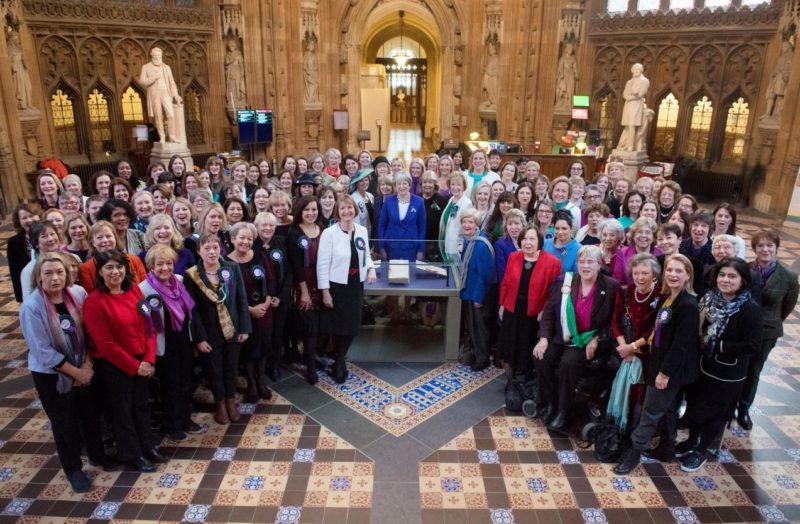
100 years ago, our country took the first step towards getting women the vote with the passing of the Representation of the People Act on 6th February 1918. Men over 21 and women over 30 who met a property qualification got the right to vote. This was a huge step, though it wasn’t until November 2018 that women got the right to stand for Parliament, and it wasn’t until 1928 that women and men got equal suffrage.
Now, 100 years later, there are 208 women MPs – a record total representing 32% of the House of Commons. There are 216 women in the House of Lords – 26%. 32% of councillors are women.
Today I am proud to be a statistic – the 367th woman ever elected to Parliament out of a total of 489 women MPs to date. I am the first woman ever elected to represent my constituency Feltham and Heston and the first female MP of Punjabi origin.
And I am proud of the stand taken by the Labour Party in changing the dynamics of UK politics. 283 of the 489 elected have been Labour. Until 1997, women had never formed more than 10% of all MPs. And now Labour will be taking the next step – making sure every woman in this country has their voice heard. We won’t stop until women are fully represented, in our policies and in our Parliament.
Tories have had two women leaders – that’s a matter for celebration. But does it show that the Tories are committed to the advancement of women in society? Their record shows otherwise. Theresa May sat round the Cabinet table that has forced cuts where women bear 86% of burden.
Labour has had two deputy leaders who became acting leaders in incredibly difficult circumstances – the Rt Hon Margaret Beckett MP – who became Britain’s first woman Foreign Secretary, and the Rt Hon Harriet Harman MP – now the Mother of the House with the longest continuous service of any woman MP in history.
45% of all Labour MPs are female while only 21% are Conservatives. Currently all female Labour MPs now represent one quarter of all the women elected in the last 100 years.
Women MPs have been instrumental in changing the policy conversation and changing the culture of our politics. Labour introduced the National Minimum Wage benefiting hugely women on low wages, child tax credits and paternity pay.
From the Equal Pay Act to The Equality Act 2010, introduced by Labour, which enshrined in law the public sector equality duty, to women and enterprise task force and targets for equality on public boards, Labour women have led the way.
Whilst progress has been made, we know there is still a long way to go – just one example is gender pay gap currently at 9.1% per hour for full time employees in the UK, or £1.32 per hour. The vast majority of victims of domestic violence are women – and the scale of the problem is a national scandal. In 2016 there were 2 million female victims of domestic violence. 2 women every week are killed by a current or ex-partner and other close relative. Refuge funding is under threat and other services to protect women from violence in all its forms underfunded and under-supported.
As we remember our history and the sisters who fought for us, and indeed honorary sisters like Keir Hardie – the first Leader of the Labour Party and the first ever Labour Member of Parliament who was a fervent supporter of women’s suffrage – we also look to our challenge of the future. Women’s equality, access to opportunity and to power in all parts of society has to be our ongoing goal, and part of our driving purpose.

